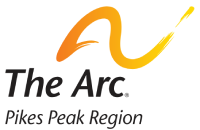By: Maria Cortner
Equal access to healthcare means more than just equal access to health insurance. The experience of someone with intellectual and developmental disabilities (I/DD) in the healthcare field is often defined by several barriers within the actual hospital or doctor’s office.
Barriers to Accessing Healthcare for People with I/DD
Barriers to accessing healthcare can include communication difficulties, as individuals with intellectual disability may be excluded from consultations. Barriers may also include failure of General Practitioners to conduct appropriate health reviews, as well as inadequate knowledge of doctors about the health needs of people with intellectual disability.
Doctors’ inadequate knowledge has contributed to diagnostic overshadowing, which occurs when signs and symptoms arising from physical or mental health problems are mis-attributed to the individual’s intellectual disability and can lead to delayed diagnosis and treatment.

People with intellectual or developmental disabilities often face barriers to access the health care they need.
In 2012, The Arc of the United States declared that “all people with intellectual and/or developmental disabilities should have timely access to high quality, comprehensive, accessible, affordable, appropriate healthcare that meets their individual needs, maximizes health, well-being, and function, and increases independence and community participation.”
The inequities in health status experienced by people with I/DD, and disproportionately higher rates of health problems experienced, are part of the reason there are gaps between what individuals with I/DD living in community settings need, and what they have access to, in healthcare. Therefore, health status among people with I/DD continues to lag behind that of the general population.
The Need for Appropriate & Individualized Health Care Treatment
Additionally, patients with I/DD have been shown to receive sub-optimal care and have often been denied appropriate treatment. Historically, health professionals have questioned whether the person was worthy of surgical treatment, due to discriminatory judgments about the person’s quality of life.
Today, we see longer life spans of people with I/DD, increased healthcare that is responsive to individual needs, as well as the development of important healthcare delivery systems that are customized to their needs. This is important, as people with intellectual disability have a higher prevalence of health problems, and the median age of death is 25 years younger than the general population. They are more likely to experience inequalities in accessing health care and to die from preventable causes, possibly because of institutional discrimination within health services. You can read more about primary barriers to health care for people with disabilities here.
Despite many barriers, people with I/DD and their families have experienced progress in creating and improving the healthcare systems to support people with intellectual and developmental disabilities, as federal lawmakers are currently making efforts to make doctors more available. Even so, there is much more that can and should be done.
To learn more about healthcare issues impacting people with I/DD and their families, please visit The Arc of the United States website here.
Subscribe To Our Newsletter and SMS Reminders
The best way to ensure that you receive our newsletter, our event invitations, SMS reminders and other important information is to become a member of The Arc of the Pikes Peak Region.
The best way to ensure that you receive our newsletter, our event invitations, and other important information is to become a member of The Arc of the Pikes Peak Region.

